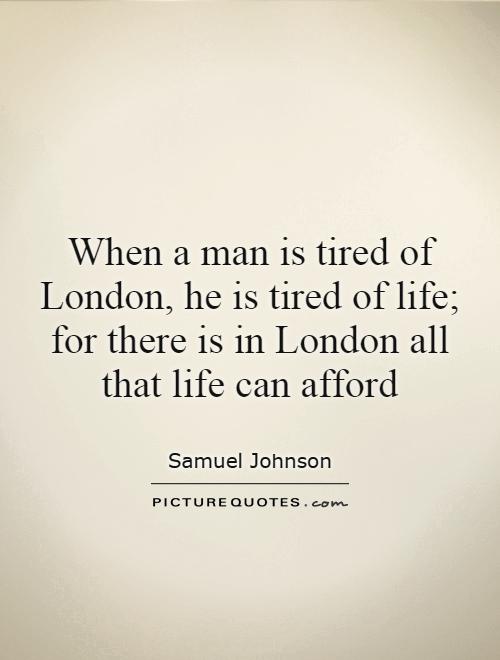When a man is tired of London, he is tired of life; for there is in London all that life can afford

When a man is tired of London, he is tired of life; for there is in London all that life can afford
Samuel Johnson, the renowned 18th-century writer and lexicographer, famously said, "When a man is tired of London, he is tired of life; for there is in London all that life can afford." This quote has become synonymous with the bustling metropolis of London and its endless opportunities for exploration, culture, and excitement.Johnson's words reflect his deep appreciation for the city of London and all it has to offer. As a man of letters and a keen observer of society, Johnson understood the vibrant energy and diversity of London, which made it a hub of creativity and innovation during his time. From the bustling streets of the city to the grandeur of its historic buildings, London was a place where one could experience the full spectrum of human existence.
Johnson himself was a product of London, having spent much of his life in the city and becoming a central figure in its literary and intellectual circles. His famous work, "A Dictionary of the English Language," was a monumental achievement that showcased his mastery of language and his deep understanding of the complexities of human communication. Johnson's wit and wisdom were on full display in his numerous essays, poems, and biographies, which captured the essence of London life in all its glory and complexity.
For Johnson, London was not just a physical place but a state of mind, a symbol of the endless possibilities and opportunities that life has to offer. In the bustling streets of the city, he found inspiration and solace, a place where he could engage with the world and make his mark on history. Johnson's words remind us that London is more than just a city; it is a living, breathing entity that embodies the richness and diversity of human experience.












 Friendship Quotes
Friendship Quotes Love Quotes
Love Quotes Life Quotes
Life Quotes Funny Quotes
Funny Quotes Motivational Quotes
Motivational Quotes Inspirational Quotes
Inspirational Quotes